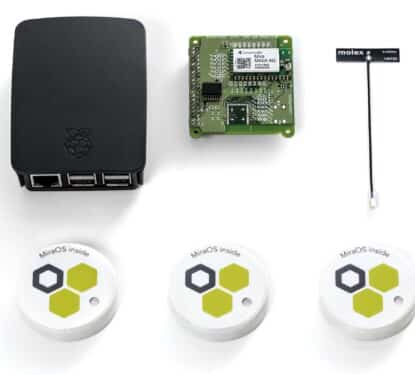Almost 140 years ago, in 1883, American college professor Warren Johnson became frustrated with his inability to control individual classroom temperatures, so designed and patented a multi-zone pneumatic control system to solve the problem. Two years later, in 1885, he established the Johnson Electric Service Company in Milwaukee, Wisconsin, a firm now known as Johnson Controls International (JCI).
Today, JCI owns thousands of patents in the fields of building control & automation and is a $25.3 Billion revenue global smart building leader.
This research note looks at the 2021 intellectual property lawsuit JCI filed against Willow Technology Corporation and the recent announcement of a licensing agreement (Partnership) between the two companies. Will JCI's grip on smart building patents hold back innovation across the building sector? How does this impact the large ecosystem of Startup companies looking to disrupt the industry?
On the 22nd of December 2021, when JCI filed an intellectual property lawsuit against Willow, it sought relief for the alleged infringement of nine of the US patents it owns. JCI insisted that Willow was aware of the patents and requested the court for preliminary and permanent injunctive relief and declaratory relief, along with an award of compensatory damages.
A key patent in the case was US Patent No. 7,031,880, which described a method and apparatus for assessing the performance of control applications in an environmental control network and for diagnosing performance problems. Other patent infringements covered the use of time-series databases (10,055,114 + 10,921,972 + 11,073,976 + 10,515,098), space graphs based on building data (11,038,709 + 11,108,587), a BAS-BIM integrator (10,534,326), and a building system data model for bidirectional relationships (11,024,292).
“It seems like any software overlay provider with Time Series Charts, Fault Detection & Diagnostics, KPIs, Supervisory Control, Grid Interaction, or an Ontology would be infringing. Meaning: If these companies violate these patents, then most of our vendor landscape of almost 300 companies does too,” wrote James Dice, Founder of Nexus Labs at the time.
“In an industry that's been held back for years by vendor lock-in strategies propelled by proprietary systems, this is unfortunate at best. If everyone needs to pay JCI to create products with these elementary capabilities, that's only going to slow our collective progress. Especially with nascent climate-critical technology like grid-interactive buildings,” Dice continued.
It is certainly the case that these types of smart building patents are a double-edged sword for the market as a whole. Vague patenting language, limited international standardization, and the slow pace of the patent registration process mean that companies can spend significant resources developing solutions without being aware of all the potential infringements they may encounter. “Billions of dollars poured into research and development may be lost, and products could even be pulled from shelves if a company or individual can't comply with patent laws,” according to Upcounsel. There is a long-running general debate as to what extent it should be possible to patent software.
This month, JCI and Willow announced a comprehensive global partnership and licensing agreement for use of the same patents listed in the infringement case. This seems like the inevitable conclusion of the 2021 lawsuit, with Willow recently laying off a large percentage of their workforce, and their stated recalibration to focus strategy on digital twin technologies for real estate. In fact in terms of outcomes, whilst this does not seem good for the wider industry, Willow can point to a new go-to-market agreement with JCI that will give them access to potential new clients, and JCI can point to a "successful defence" of their IP that will make competitors less certain of their own position.

Questions remain about why Willow and BuildingIQ have been singled-out for lawsuits, and why others companies, who clearly compete on a similar level to JCI were not.
Beyond the JCI-Willow situation, there is of course a bigger debate around the impact of smart building patents ownership and licensing trends in the technology space, especially on startup innovation in the market.
Clues can perhaps be seen in a tangential smart building technology market like video analytics. For years companies in the market bought up US and international patents looking to give themselves a competitive advantage. For example, Avigilon (now owned by Motorola Solutions) spent millions of dollars buying up patents in 2015, eventually holding over 200. Whilst this would have made them look good to their eventual acquirer, how useful a competitive advantage was it? Not much, in my opinion.
The pace of innovation in video analytics (turbocharged by Artificial Intelligence) has increased significantly in the last 8 years and there are still startups coming to market with new offerings. Have there been patent infringement lawsuits along the way? Yes. But they are often an expensive and time-consuming process where there are no real winners except the lawyers.
We could anticipate a similar scenario to play out in smart buildings technology, perhaps the odd patent infringement lawsuit but without much impact on innovation or startups bringing new technologies to market. If a larger vendor really understood this, the "gangster move" would be to open source their patents, create a massive PR coup and generate huge goodwill in the industry. Elon Musk understood this in 2014 and look what it did for Tesla.



